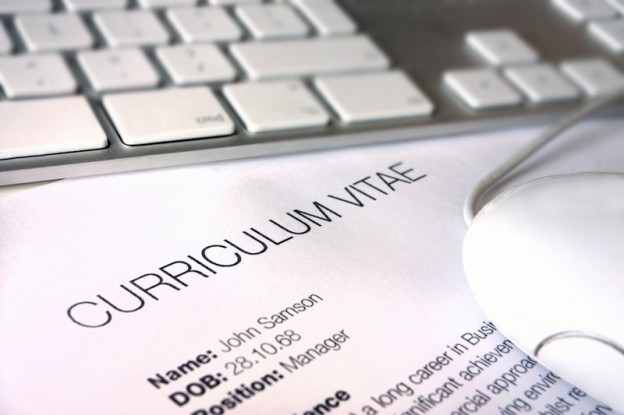Expert witnesses testify in more than half of all civil trials. In state court trials, experts tend to be doctors testifying in personal injury cases. In federal trials, less than half of expert witnesses are medical professionals.
In some cases, the choice of an expert is dictated by circumstances. In personal injury trials, treating physicians may testify as fact witnesses, but they are often in the best position to give expert opinions about a patient’s prognosis and future health care needs.
When parties retain an expert who has no prior knowledge of the case, they may have the opportunity to choose among several potential experts. In a routine case, that choice may be dictated by geography and budget. It might not be cost-effective for a plaintiff in Florida to retain an expert in California. A Florida defendant, on the other hand, might want to create a settlement incentive by retaining a California expert and driving up discovery costs.
Assuming that multiple experts are available who fit within a party’s budget, the choice of an expert depends on several factors. A lawyer’s favorable past experience with an expert might be a decisive factor, but juries may view an expert as the lawyer’s “hired gun” if the same expert testifies repeatedly for the same lawyer.
When choosing among experts who have no prior relationship with the lawyer, intuition can pay a role. Unfortunately, intuition is a less than perfect yardstick for measuring an expert’s likely performance. Lawyers can benefit from research that will inform the lawyer’s choice.
Qualifications
An expert’s credentials and experience are important, but they might only be important as a threshold. Jurors will probably discount the testimony of a witness who clearly isn’t qualified to give an opinion, but jurors do not defer to the opinions of an expert simply because the expert has strong credentials. One study of jury deliberations using mock juries found that jurors consider an expert’s credentials and expertise, but spend the bulk of their time deciding whether the expert’s testimony is accurate.
The study concluded that credentials are “a peripheral cue” that juries may rely upon to accept an expert’s opinion, “all other things being equal.” The study suggests that jurors scrutinize the quality of an expert’s opinions rather than deferring to the expert’s opinions simply because they come from an authoritative source.
Law Professor Andrew Jurs studied juror perceptions of expert witnesses. Jurs surveyed jurors who had actually deliberated in trials that featured expert testimony.
Jurs found that an expert’s “impressive academic credentials” were important to 61{d61575bddc780c1d4ab39ab904bf25755f3b8d1434703a303cf443ba00f43fa4} of the surveyed jurors. However, 81{d61575bddc780c1d4ab39ab904bf25755f3b8d1434703a303cf443ba00f43fa4} considered it important that the expert was “a leading expert in the field.”
When Jurs surveyed the experts who testified in those cases, he discovered that experts overvalued academic credentials as a factor that would be important to jurors. Conversely, they undervalued being a “leading expert.”
Lawyers should certainly select experts who are qualified to express opinions, but should not expect jurors to accept an expert’s opinion simply because the expert has strong credentials. If there is evidence that would allow a witness to be characterized as “a leading expert in the field,” however, that expert might be preferable to witnesses who are less prestigious.
Communication Skills
Jurs found that “the most important trait for an expert is the ability to convey technical information in a nontechnical way.” Jurs’ survey revealed that 94{d61575bddc780c1d4ab39ab904bf25755f3b8d1434703a303cf443ba00f43fa4} of jurors valued the expert’s ability to explain testimony in ways that the jurors understood.
Jurs’ finding does not mean that an expert should “dumb down” testimony in a way that jurors will regard as condescending. Jurs cites other studies suggesting that experts enhance their credibility by using technical jargon. The key is to explain jargon using language that jurors can understand.
The research suggests that lawyers should review reports that experts have written in other cases to determine whether the experts were able to convey opinions in a way that laypersons are likely to understand. Assessing an expert’s communication skills, however, goes beyond the expert’s ability to write an accessible report.
When lawyers interview experts, they should try to get a sense of the expert’s ability to communicate in nontechnical language. Questions like “How do you explain this concept to juries?” will give the lawyer a feel for the expert’s ability to make complex information comprehensible to lay jurors.
Reviewing transcripts of prior testimony will give the lawyer a sense of whether the expert communicates clearly and whether the witness becomes rattled during cross-examination. Finally, lawyers should talk to other lawyers who have used the expert to get a sense of how effectively the expert is able to communicate technical opinions in nontechnical ways.
Other Factors
The least important of the factors Jurs studied was the expert’s physical appearance. The expert’s “pleasing personality” was also relatively unimportant to jurors. Hiring an attractive and friendly expert is less important than hiring a qualified expert who has strong communication skills.
Most of the jurors told Jurs that they were not concerned about the fees charged by experts. They expected experts to be paid and they did not expert experts to be impartial. Beginning with the premise that experts are likely to be partial to the party that hired them, jurors tended to set aside questions of bias and examined the expert’s opinions on their merits.
According to Jurs, communication is the key to effective expert testimony. A qualified expert who is a skilled communicator will usually be a lawyer’s best choice.





